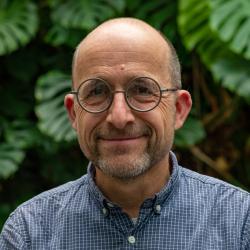Reconciling biodiversity conservation with people’s needs for food, fibre and a stable climate
Research Area
My group is interested in understanding the conservation outcomes of contrasting approaches to meeting human demands for food, wood, infrastructure and recreation; and in developing robust methods for quantifying and improving the performance of conservation and carbon interventions. How can we feed, fuel or house a planet of 10 billion people at least cost to other species? How can conservation projects be designed to ensure they are locally effective, long-lasting, and do not simply displace damage elsewhere? How much does effective biodiversity conservation cost, to whom, and is it worth it?
We tackle these and other questions using a very wide range of methods, including field observations, field and lab experiments, statistical analysis, theory and large-scale spatial modelling. The most interesting insights are often obtained at the intersections of disciplines, so we work closely with colleagues in economics, agriculture, computer science, psychology and social science. Because we are very largely focused on practical outcomes, projects typically involve collaborators in conservation NGOs or agencies. Being based in the Cambridge Conservation Initiative’s David Attenborough Building gives us fantastic opportunities for interdisciplinarity and linking our work into policy and practice.
Project Interests
Topics we plan to work on in the next few years include characterising promising high-yielding/low-externality farming systems, and mechanisms for linking these with habitat protection or restoration; species’ dispersal in the context of land sparing; using our new LIFE (Land-cover change Impacts on Future Extinctions) metric to examine likely impacts of large-scale policy changes in agriculture, forestry and conservation; quantifying how different approaches to producing, sourcing and using wood are likely to impact biodiversity and the climate; and developing guidelines for better monitoring and improved design of jurisdictional-level REDD+ programmes. Student-led projects are also welcome.

